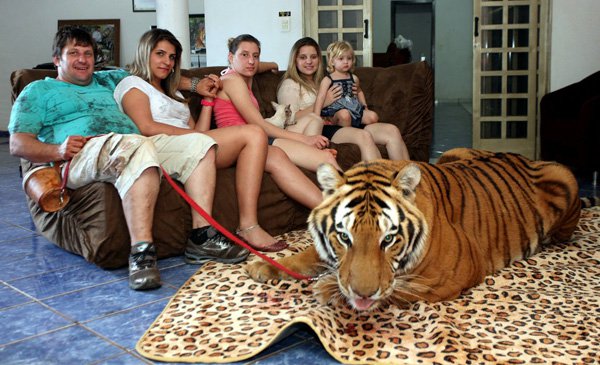
When bringing home a new cat or kitten to a different
environment with other pets and additional family members this
does not have to be an overwhelming experience for the new cat
or kitten and family. Cats and kittens adjust quickly to
different environments than we do. Depending on the nature,
breed and the environment of a new cat or kitten is how they
will adjust. Kittens will adjust quicker and smoother than an
older cat. Especially if the environment happens to be a busy,
crowed home.
Here are a few points that will help with the transforming
environments for your new cat or kitten.
You will need to have a place for the cat or kitten to have of
his or her own. This should be out away from the daily hustle of
daily living. You will want to provide privacy for the cat or
kitten when they need the privacy. Making the sleeping area
comfortable, maybe with a pillow or two, soft blanket even
something the cat or kitten used before to help them with the
move.
You should put the cats litter box across the room from where
they have their privacy. Cats will not sleep by their litter
boxes. If the cat is use to a special kind of litter, you will
want to try to keep using that particular band. If you are going
to change the litter to a different type or brand, you will want
to do this slowly. Mix small amounts of the new litter to the
brand the cat or kitty are use to.
Place food and water dish as far away from the little box as you
can. Preferably opposite site of the room as cats and kittens do
not like to eat near the litter box. Another thing you may want
to think about in the near future is that they do have
self-feeding water and dry food dispensers for cats and kitten.
The feeders do come in different sizes; this is helpful so that
the new cat or kitten is not getting too much to eat. Over
feeding, a pet is not healthy on the pet or on you. This is
something that can be monitored and adjusted as the pet grows.
Place the cat in the room and let them explore the room with you
in it. At this time, you will be able to bond with the cat as
well as start training your new cat or kitten. Placing soiled
litter in the box will also tell the kitty where to go or use
catnip spray that is on the market this does the same thing.
Show the new pet where the water is and food.
Allow the cat to look over everything in the room to be able to
see the area they will be staying. Allow the cat to look out the
window, check out the couch, chairs, and tables. If the cat or
kitten appears that it is sleepy, allow them to do this you may
want to move the cat or kitten to the sleeping area if they have
fallen asleep some other place. You will want to move them to
the sleeping area to have them know where the sleeping area is.
Allowing the cat or kitten on his or her own to explore the rest
of the house or apartment would be beneficial. By leaving doors
cracked so they can go explore the home to see the parts of the
home that they will be living in. Leaving doors cracked open is
something you will want to do, so that the new pet can explore.
Do not push kitty on the other family members or other family
pets as this could be over whelming. Allow the cat or kitty to
do this on his or her own time. Then Kitty will be able to use
their own sense to introducing themselves to the family. Meeting
the dog is now not a good time. You will want to contain him for
a bit, until kitty gets use to the house, family, and
environment. There will be plenty of time for the new cat or
kitty to meet the dog and for the new cat or kitty to set the
rules for the dog. This will take you to help set these rules up
for them.
After the new cat or kitty has settled in with the environment,
this is the time, step by step to start training. The first in
training will be changing location on the sleeping, eating and
litter box.
Patience, love, and showing your new cat or kitten that you care
are the start of a great relationship.
 Common Tropical Fish Diseases
Common Tropical F
Common Tropical Fish Diseases
Common Tropical F
 The Importance Of Vitamins In A Dogs Diet
The Importance Of
The Importance Of Vitamins In A Dogs Diet
The Importance Of
 An Ancient Breed - the Maltese
An Ancient Breed - the Maltese
Maltese dogs ar
An Ancient Breed - the Maltese
An Ancient Breed - the Maltese
Maltese dogs ar
 Seven Tips For Raising A Well-adjusted Puppy
Seven Tips For Ra
Seven Tips For Raising A Well-adjusted Puppy
Seven Tips For Ra
 Cairn Terrier Hereditary Health And Wellness
Cairn Terrier Her
Cairn Terrier Hereditary Health And Wellness
Cairn Terrier Her
Copyright © 2005-2016 Pet Information All Rights Reserved
Contact us: www162date@outlook.com